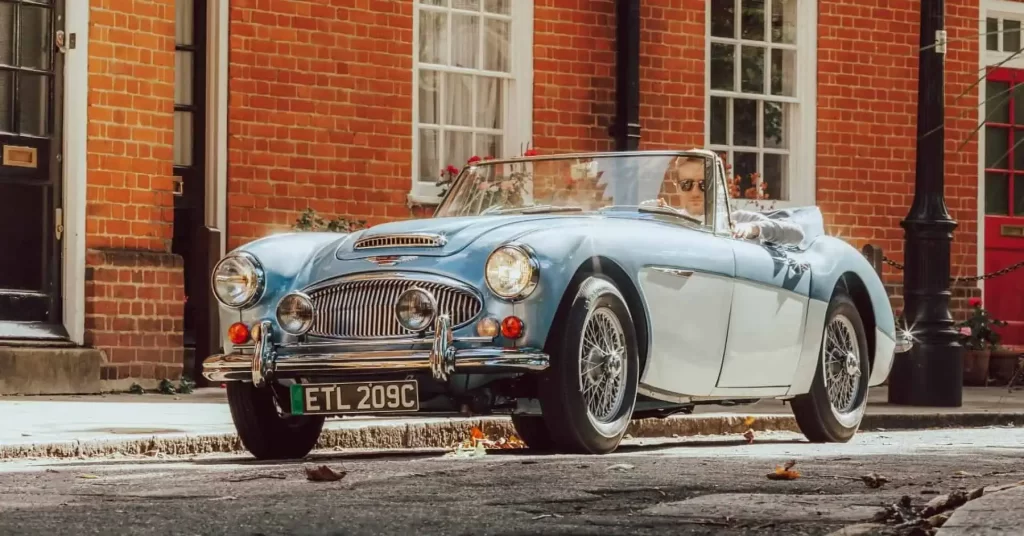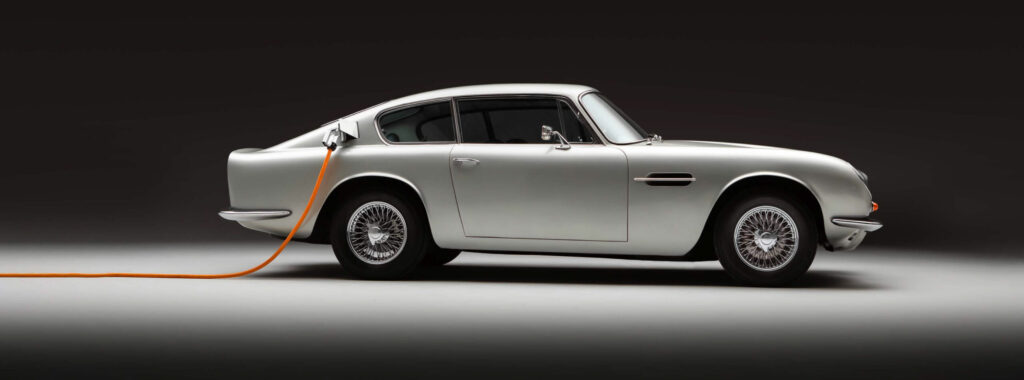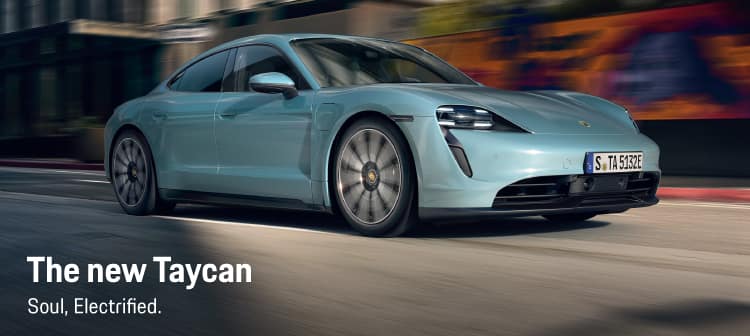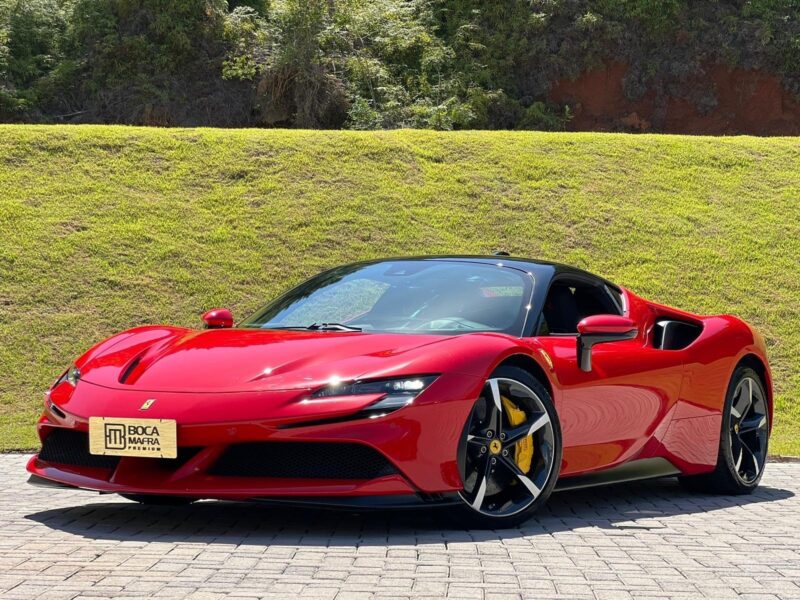collector's club Albertino
Classic Cars and Environmental Sustainability
In the automotive universe, classic vehicles have always held a unique position, captivating enthusiasts with their timeless designs and unparalleled craftsmanship. However, as society intensifies its concern for environmental sustainability, the adaptation of classic cars to ecological responsibility becomes an urgent issue. This article explores the intersection of classic cars and environmental sustainability, highlighting the growing emphasis on ecological responsibility and the quest for eco-friendly solutions in the realm of vintage automobiles.
As global attention turns to sustainability, traditional notions of classic cars undergo reassessment. Admired for their beauty and heritage, these automotive icons have long been associated with high fuel consumption, emissions, and a lack of energy efficiency. Faced with the urgency to reduce carbon footprints and promote environmentally conscious practices, both classic car enthusiasts and environmental advocates seek eco-friendly solutions to make these beloved vehicles more sustainable.
Moreover, the increasing focus on ecological responsibility underscores the pressing need for environmentally friendly alternatives in the automotive industry, especially concerning ecological solutions for classic cars. Classic cars, with their vintage charm and historical significance, do not escape this quest for a sustainable future. Preserving the aesthetics of classic cars must align with the imperative to reduce carbon emissions and promote ecologically conscious transportation solutions to ensure an environmentally responsible legacy.

Challenging perceptions and embracing sustainability, the classic automotive community is committed to shaping a future where passion for timeless cars coexists harmoniously with environmental responsibility. Vintage cars, characterized by powerful engines and inefficient fuel systems, tend to consume more fuel compared to modern vehicles. This increased fuel consumption directly translates to higher carbon dioxide emissions, contributing to greenhouse gases and climate change.
In addition to fuel consumption and emissions challenges, aligning classic cars with sustainability goals includes addressing maintenance and restoration issues. These processes often require specialized parts from distant locations, contributing to additional emissions related to transportation. Furthermore, the use of non-eco-friendly materials, such as certain paints and lubricants, in the restoration process further increases the environmental footprint.
However, a growing movement towards eco-friendly solutions for classic cars is evident. One such alternative is represented by the so-called “green classic cars,” where old vehicles are retrofitted with modern electric motors. These electric classic cars maintain the charm and aesthetics of their original designs, providing a sustainable option. Replacing traditional combustion engines with electric motors eliminates direct emissions, reducing the overall carbon footprint associated with their operation. In addition to electric conversions, other sustainable solutions for classic cars are being explored in the community dedicated to these vehicles.
Sustainable practices, such as the use of ecologically friendly restoration materials, energy-efficient upgrades, and the adoption of alternative fuels such as biofuels or hydrogen, are gaining prominence. These approaches aim to reduce the environmental impact of classic car restoration and promote sustainability throughout the entire life cycle of these cherished vehicles.
One of the most notable advances in making classic cars more environmentally sustainable is the potential of electric drivetrain conversions. Replacing traditional combustion engines with electric motors can result in a remarkable transformation for these timeless vehicles.
First and foremost, electric drivetrain conversions offer an environmentally conscious solution for classic cars. By harnessing electricity, these retrofitted vehicles can significantly reduce emissions and operate more efficiently. The conversion process involves removing the internal combustion engine and integrating an electric motor, batteries, and associated components, seamlessly harmonizing vintage aesthetics with modern technology.
In addition, electric conversions provide various benefits beyond environmental sustainability. The torque characteristics of electric motors enhance the driving experience, offering instant acceleration and smooth performance. Moreover, reduced reliance on fossil fuels results in lower operational costs and less vulnerability to fluctuations in fuel prices, making electric classic cars more economically viable in the long run. Additionally, electric conversions bring a host of environmental benefits to classic cars.

By eliminating exhaust emissions, these adapted vehicles contribute to cleaner air, combating pollution and reducing carbon footprints. The transition to electric power significantly decreases greenhouse gas emissions, making electric classic cars an environmentally friendly alternative to their gasoline-powered counterparts. Furthermore, electric conversions offer higher energy efficiency. Traditional combustion engines are known for wasting energy through heat dissipation, while electric motors are highly efficient, converting a larger portion of stored energy into useful mechanical energy.
This efficiency results in reduced energy consumption, enabling longer driving ranges on a single charge and minimizing overall resource consumption. Therefore, electric drivetrain conversions for classic cars represent a significant step toward a more sustainable future. By incorporating modern technologies, these conversions breathe new life into old vehicles while mitigating their environmental impact. The combination of classic car aesthetics with eco-friendly electric drivetrains offers a unique opportunity to preserve automotive heritage without compromising sustainability goals.
Pioneering Electric Conversions: Transforming Classic Cars for a Sustainable Future

In recent years, several companies have stood out as pioneers at the intersection of classic cars and sustainability, presenting innovative solutions to transform old cars into environmentally conscious electric vehicles. These companies play a revolutionary role in the industry, addressing the environmental challenges associated with classic cars while preserving their timeless beauty and charm.
Lunaz: Pioneering Electric Conversions

Lunaz, founded by David Beckham, has garnered considerable attention due to its commitment to converting classic cars into sustainable electric vehicles. Its mission focuses on integrating electric propulsion into old cars, allowing these beloved icons to continue gracing the roads with reduced environmental impact. Lunaz’s meticulous approach involves advanced engineering and design processes, preserving the original aesthetics and character of classic cars while embracing the benefits of electric mobility.
E-Types and Beyond: Jaguar’s Electric Revolution

Jaguar, a renowned automobile manufacturer with a rich heritage, has also joined the electric revolution for classic cars. The Jaguar Classic division offers electric conversion services for iconic models such as the E-Type. This initiative aims to combine the elegance and allure of vintage models with the sustainability and efficiency of electric motors. By revitalizing these classics with modern electric technology, Jaguar ensures that enthusiasts can appreciate the timeless beauty of the E-Type while driving emission-free.
Electrifying Porsche: Embracing Sustainable Performance

Porsche, known for its high-performance sports cars, has also embraced the move toward sustainability through its Porsche Classic division. Through the Porsche Classic E-Performance program, they offer electric conversions for old models, allowing classic car enthusiasts to experience the thrill of driving while minimizing their environmental impact. Porsche’s electric conversions maintain their renowned standards of engineering excellence, providing enhanced performance and zero-emission driving experiences.
Electric Restorations by EV West, Founded by Former Tesla Employees

EV West, founded by former Tesla employees, specializes in electric conversions for various vehicles, including classic cars. With expertise in electric motors and battery systems, EV West revitalizes old cars, transforming them into environmentally friendly electric vehicles. Their conversions not only reduce emissions but also deliver better performance and increased reliability, enabling classic car enthusiasts to embrace sustainability without sacrificing the joy of driving.
Reviving Classics: Electric GT

The Electric GT, based in California, is dedicated to converting classic cars into electric vehicles while preserving their unique identities. Their meticulous approach involves customizing each conversion to maintain the essence and beauty of the original design. Electric GT covers a wide range of classic car models, from American muscle cars to European sports cars, offering enthusiasts the opportunity to drive their favorite classics with electric power.
These companies, including Lunaz, exemplify the evolution of the electric conversion industry for classic cars. By blending the allure of vintage aesthetics with the benefits of electric mobility, these pioneers are driving the transformation of classic cars into sustainable vehicles. With their commitment to preserving history and embracing environmental responsibility, these companies are shaping a greener future for the automotive industry, where classic cars can harmoniously coexist with sustainability goals.
Towards a Greener Future
The compatibility between old cars and sustainability is no longer a distant aspiration but a tangible reality. Electric drivetrain conversions have emerged as a significant breakthrough to make classic cars more eco-friendly. Companies like Lunaz, Jaguar, Porsche, EV West, and Electric GT are at the forefront of this transformation, demonstrating that integrating electric propulsion into old cars can be successful.
Looking ahead, the prospects of a world where classic cars coexist with environmental responsibility are promising. The passion for preserving automotive history and the commitment to sustainable practices are converging, driving a shift in the narrative around old cars. Through the adoption of electric conversions, the promotion of ecological restoration materials and practices, and the continuous promotion of innovation, we can ensure that classic cars continue to be admired for their beauty and craftsmanship while playing a crucial role in the global fight against climate change.
Classic car enthusiasts, industry professionals, and decision-makers must join forces and support initiatives that promote sustainability in the realm of vintage vehicles. By funding research and development, encouraging the adoption of electric conversions, and endorsing ecological restoration materials and practices, we can accelerate the transition to a greener future. By embracing the potential of electric conversions, emphasizing the importance of sustainability, and fostering collaboration, we can move towards a future where old cars and environmental responsibility are seamlessly integrated. Let’s pave the way!


Seja o primeiro a comentar!